

|
|
Penny Paradise
R2 - United Kingdom - Network Review written by and copyright: Paul Lewis (10th April 2013). |
|
The Film
 Penny Paradise (Carol Reed, 1938) 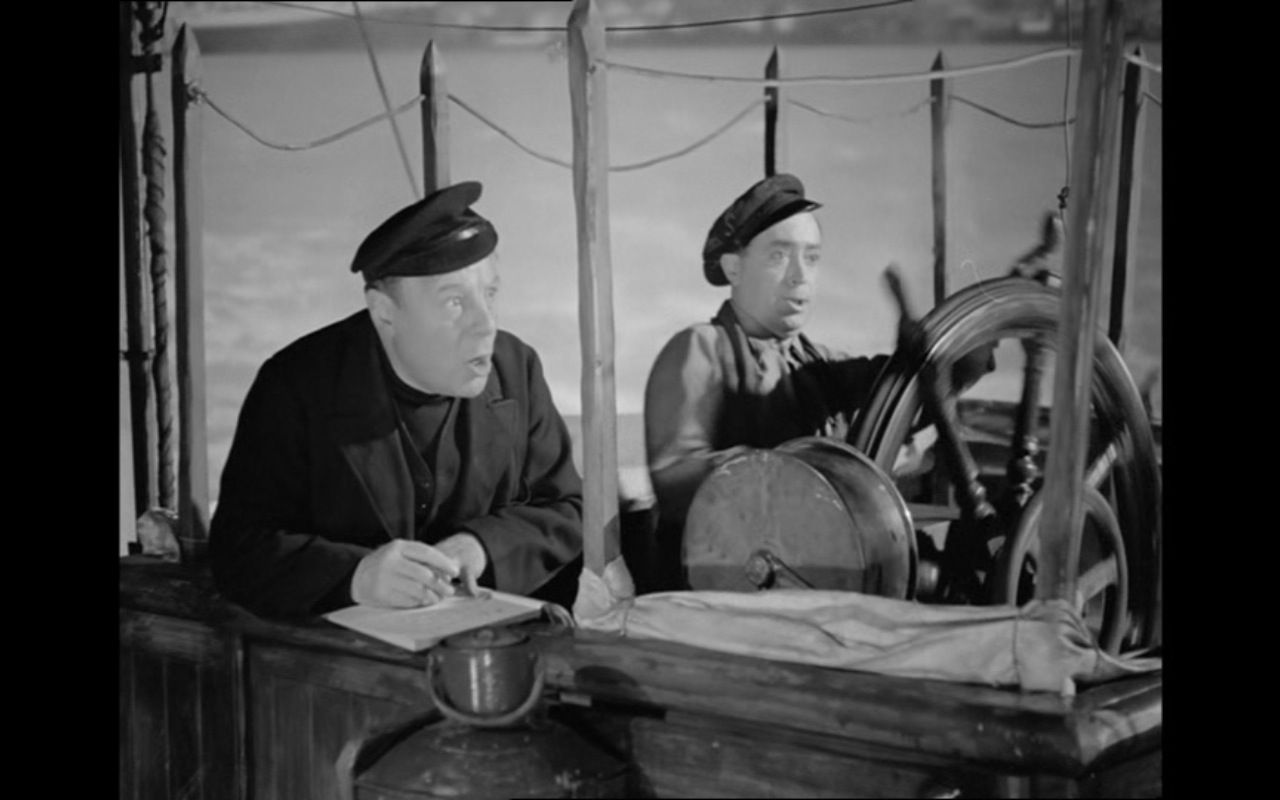 Citing Penny Paradise, a film Carol Reed directed whilst under contract to Ealing, Charles Drazin has suggested that ‘Reed could animate the most pedestrian of stories’ (2007: 63). The film itself, set in Liverpool at the behest of producer Basil Dean (a native Liverpudlian), tells the story of Joe Higgins (Edmund Gwenn), the skipper of a small tugboat. Rachael Low has suggested the film is ‘strikingly realistic in its atmosphere’, and there is definitely a sense of naturalism in the film’s depiction of the lives of the tugboat crews – the café to which the crews retire after their work brings to mind the café in which the drivers socialise in Cy Endfield’s gritty Hell Drivers (1957) (Low, 2005: 252). However, despite the accurate colloquialisms that pepper the script (‘You meant what you said last night about chucking your job, didn’t you?’, Higgins is asked at one point), the lack of appropriate regional accents amongst most of the cast (something which would mar many British ‘regional’ films until the British ‘New Wave’ in the late-1950s) negates this realism somewhat. Citing Penny Paradise, a film Carol Reed directed whilst under contract to Ealing, Charles Drazin has suggested that ‘Reed could animate the most pedestrian of stories’ (2007: 63). The film itself, set in Liverpool at the behest of producer Basil Dean (a native Liverpudlian), tells the story of Joe Higgins (Edmund Gwenn), the skipper of a small tugboat. Rachael Low has suggested the film is ‘strikingly realistic in its atmosphere’, and there is definitely a sense of naturalism in the film’s depiction of the lives of the tugboat crews – the café to which the crews retire after their work brings to mind the café in which the drivers socialise in Cy Endfield’s gritty Hell Drivers (1957) (Low, 2005: 252). However, despite the accurate colloquialisms that pepper the script (‘You meant what you said last night about chucking your job, didn’t you?’, Higgins is asked at one point), the lack of appropriate regional accents amongst most of the cast (something which would mar many British ‘regional’ films until the British ‘New Wave’ in the late-1950s) negates this realism somewhat.
In the film, Higgins believes that he has won the football pools. However, it is revealed that his friend Pat (the Irish actor and comedian Jimmy O’Dea, whose accent offers a bit of diversity to the film’s soundscape), Higgins’ colleague and suitor to his daughter Betty (Betty Driver), whom Higgins trusted to post his pools coupon, had forgotten to put the envelope containing the coupon into the post box. Pat struggles to inform Higgins of this news, as Higgins celebrates his win by throwing an expensive party for his friends and colleagues. (‘This place fair reeks of alcohol’, a woman notes during the celebration. ‘Aye, it’s lovely, ain’t it, eh?’, Higgins responds.) Betty is also tempted away from Pat by the company’s money-grubbing office clerk Bert (Jack Livesey). As this is a comedy, with some low-key musical sequences (Betty sings to the men in the café, for instance, and O’Dea performs a comic musical number), we know that Betty will see through Bert and return to Pat, and Higgins’ dilemma will resolve itself, and at the end of the film Higgins is given the captainship of the company’s new tugboat, the Mersey Queen – a position that, prior to his belief that he had won the pools, he aspired towards. 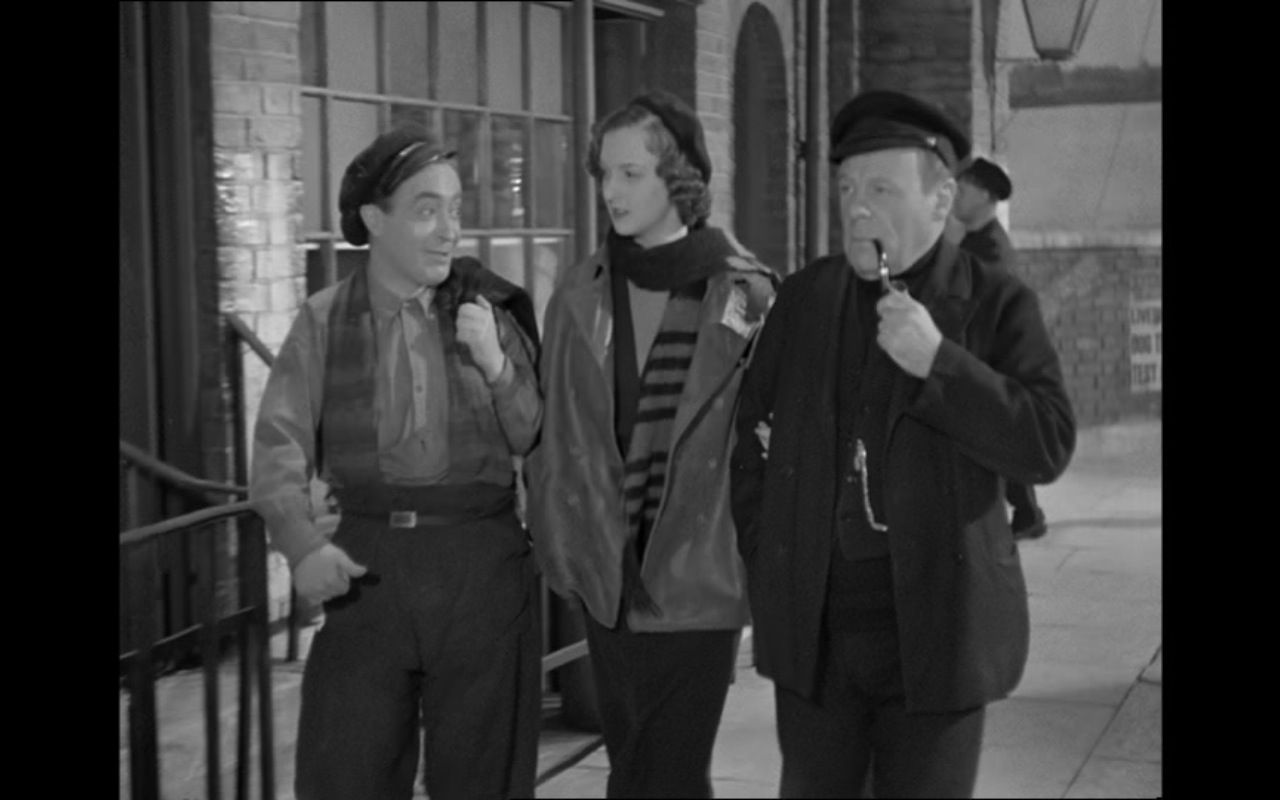 The film has many similarities with an earlier comedy picture, The Last Coupon (Frank Launder, 1932), which had been based on a stage play by Ernest Bryan. The Last Coupon found comic Leslie Fuller playing a coal miner named Bill Carter who believes he has won a substantial amount of money on the pools (twenty thousand pounds, the same sum Higgins believes he has won in Penny Paradise) and begins to spend money wildly; however, Carter discovers that he has forgotten to post the coupon. The Last Coupon was remade in 1937: Spring Handicap (directed by Howard Brenon) offered a similar narrative, but instead of the protagonist Jack Clayton (Will Fyffe) winning the pools – as in The Last Coupon and Penny Paradise – in Spring Handicap he receives a substantial inheritance, which his wife Meg (Maire O’Neill) struggles to make sure he doesn’t waste. (Maire O’Neill also appears in Penny Paradise, as a widow whom Higgins has been courting.) The film has many similarities with an earlier comedy picture, The Last Coupon (Frank Launder, 1932), which had been based on a stage play by Ernest Bryan. The Last Coupon found comic Leslie Fuller playing a coal miner named Bill Carter who believes he has won a substantial amount of money on the pools (twenty thousand pounds, the same sum Higgins believes he has won in Penny Paradise) and begins to spend money wildly; however, Carter discovers that he has forgotten to post the coupon. The Last Coupon was remade in 1937: Spring Handicap (directed by Howard Brenon) offered a similar narrative, but instead of the protagonist Jack Clayton (Will Fyffe) winning the pools – as in The Last Coupon and Penny Paradise – in Spring Handicap he receives a substantial inheritance, which his wife Meg (Maire O’Neill) struggles to make sure he doesn’t waste. (Maire O’Neill also appears in Penny Paradise, as a widow whom Higgins has been courting.)
From the outset, the film has some effective comic sequences. In the opening sequence, Pat, who is supposed to be guiding the tug boat towards a larger ship, is distracted by two pretty girls – to whom he waves – and the tug crashes into the bigger vessel. However, Higgins and Pat’s solidarity is shown through this incident: Higgins defends Pat’s carelessness. There are also some interesting reflections on ideas of working class life in the cities: in another sequence, as Betty and Pat listen to the radio, Pat reflects wistfully on his home in Ireland – a country which he left during his childhood – and suggests that Liverpool can never compare with it. Betty tells him, ‘There’s nothing wrong with Liverpool’. However, Pat asserts that Liverpool is ‘Just like any other city, full of dirt and noise’. Angrily, Betty informs Pat that the city is ‘my home, Pat, the only home I’ve ever known since I was a kid’. The film runs for 69:22 mins (PAL) and has been released as part of Network’s Ealing Studio Rarities Collection, Volume 1. The contents of this set are as follows: DISC ONE: Escape! (Basil Dean, 1930) (68:20) West of Zanzibar (Harry Watt, 1954) (92:49) DISC TWO: Penny Paradise (Carol Reed, 1938) (69:23) Cheer Up! (Leo Mittler, 1936) (68:43) Gallery (2:31)
Video
The film is presented in its native aspect ratio of 1.33:1. This is perhaps the best presentation in the Ealing Studios Rarities Collection set: the monochrome image has very good contrast and tonality, and the print is in remarkably good condition, with very little damage present. 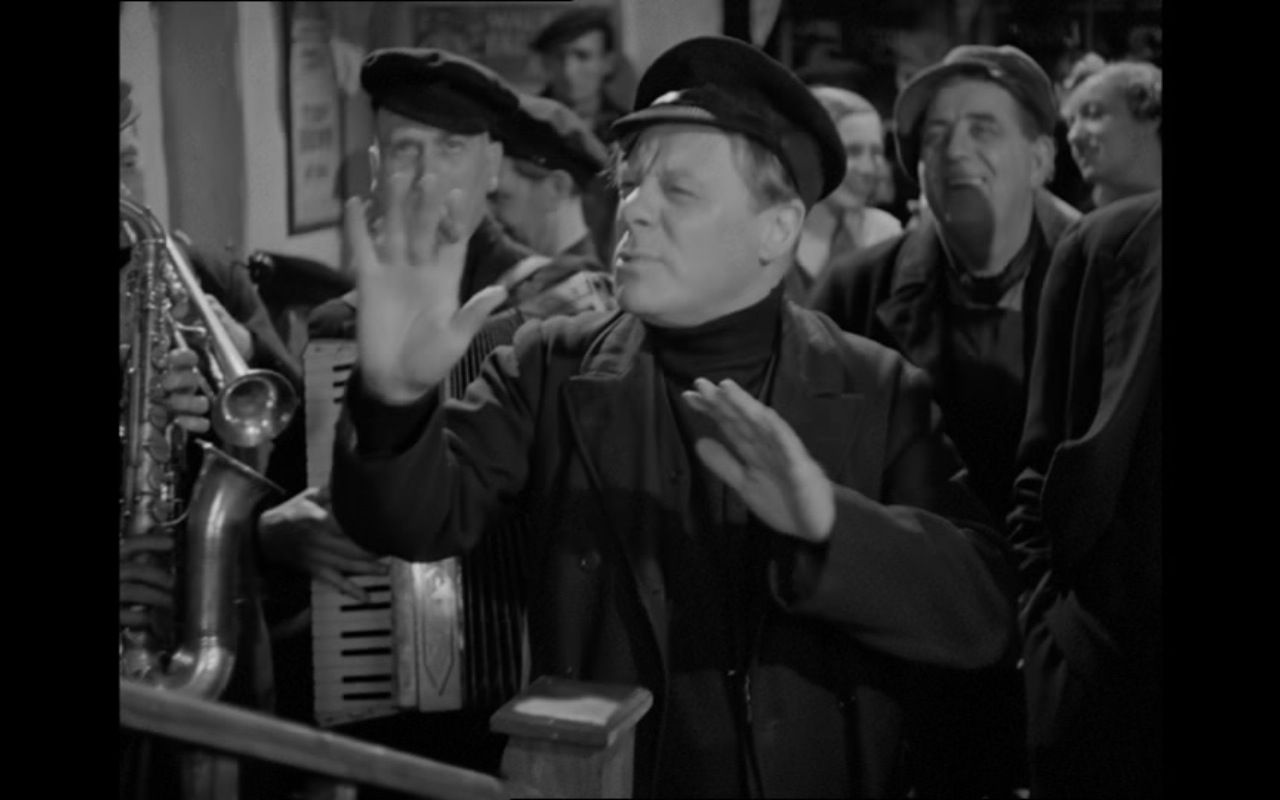 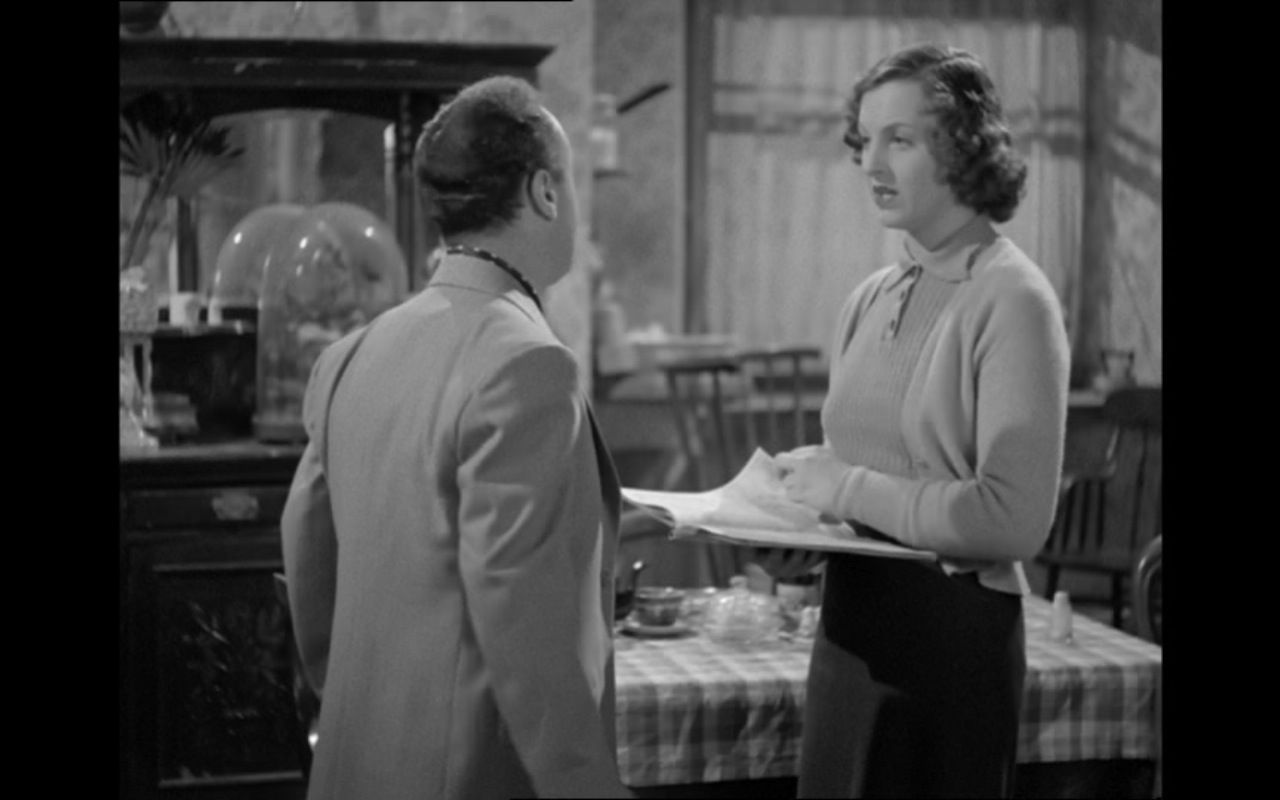
Audio
Audio is presented via a two-channel mono track. This is clear and hiss free. Unlike Escape!, contained in the same set, dialogue is always audible (which just goes to show how far sound recording technology had developed between 1930 and 1938). Sadly, no subtitles are included.
Extras
Overall
Overall 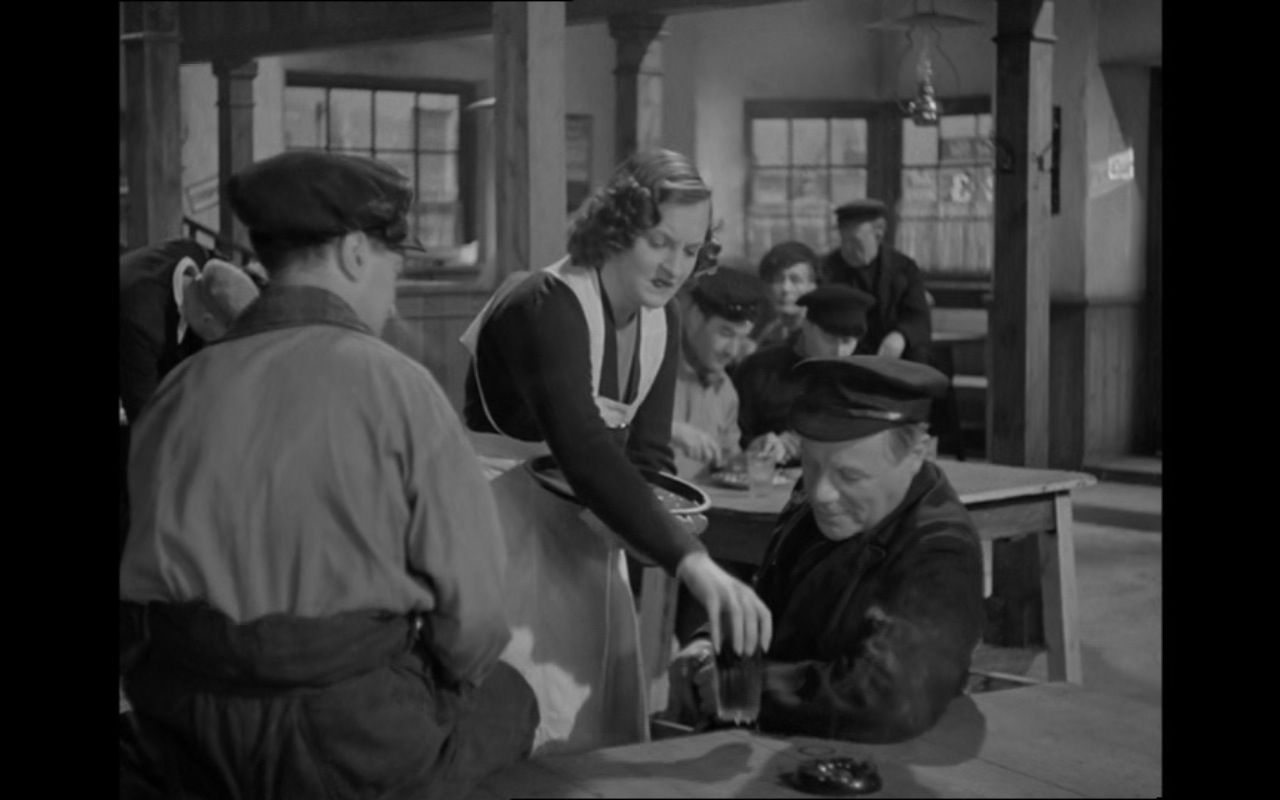 Penny Paradise is a warm, human and entertaining film with some very strong performances. The narrative may be highly reminiscent from several other films, but the script has some nicely authentic turns of phrase and colloquialisms – although, as noted above, the lack of appropriate regional accents holds back some of the more realistic elements within the picture. The presentation of the film in this set is very good. Penny Paradise is a warm, human and entertaining film with some very strong performances. The narrative may be highly reminiscent from several other films, but the script has some nicely authentic turns of phrase and colloquialisms – although, as noted above, the lack of appropriate regional accents holds back some of the more realistic elements within the picture. The presentation of the film in this set is very good.
References: Drazin, Charles, 2007: The Finest Years: British Cinema of the 1940s. London: I B Tauris Low, Rachael, 2005: The History of the British Film, 1929-1939: Film Making in 1930s Britain. London: Routledge This review has been kindly sponsored by: 
|
|||||

|